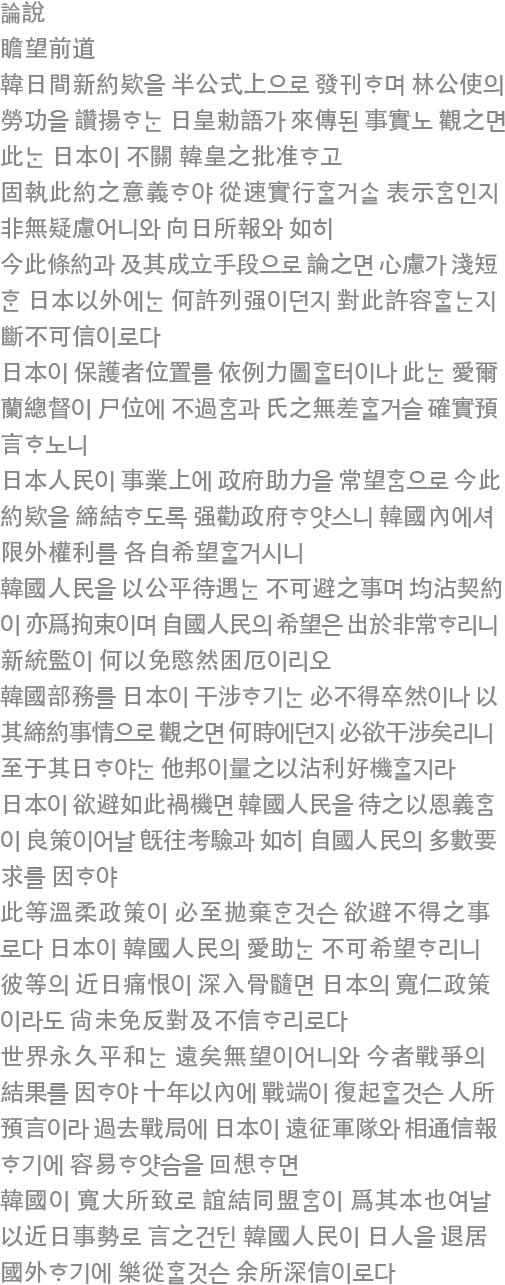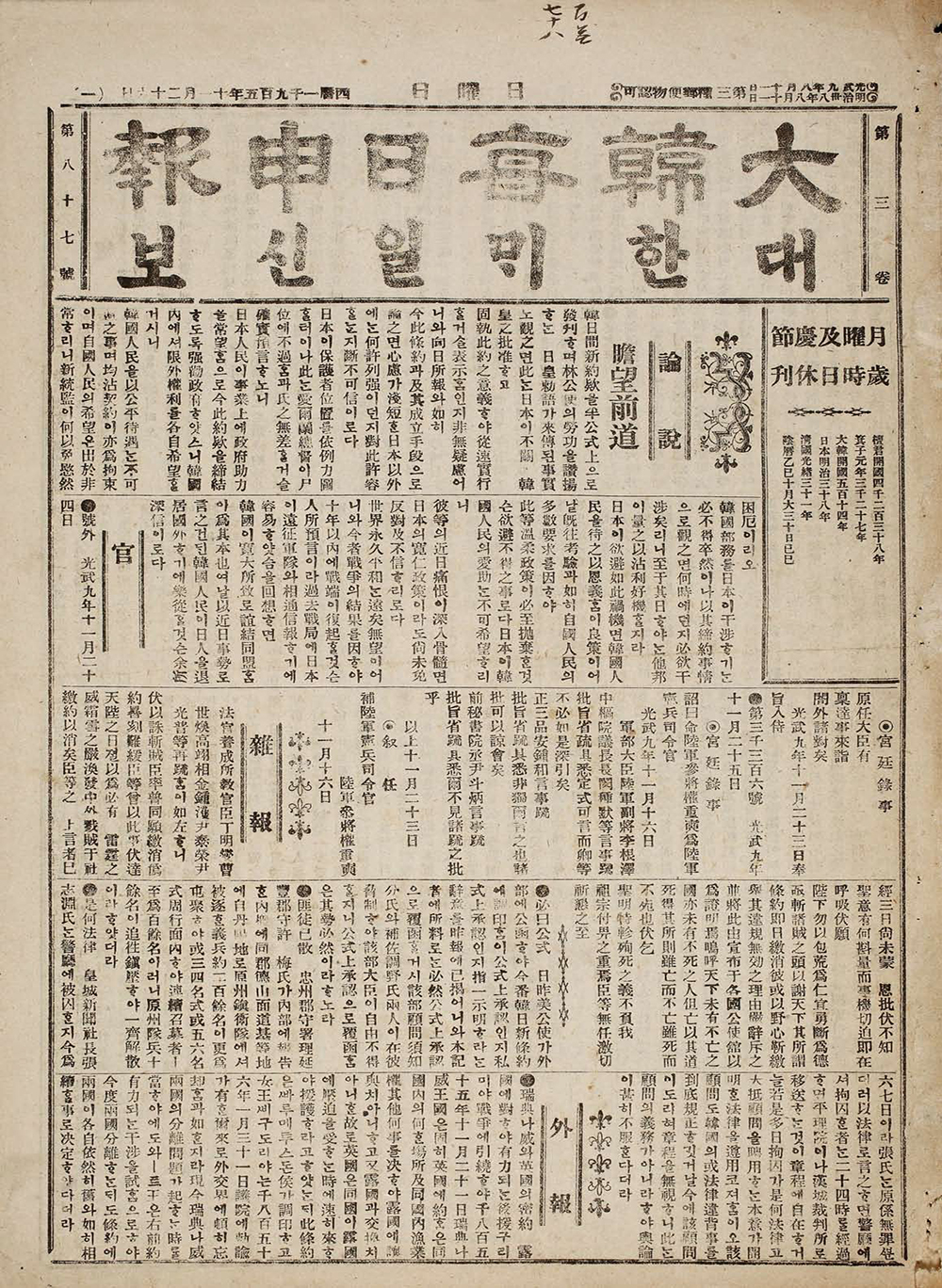Dokdo, the First Victim of Japan’s Aggression Against the Korean Peninsula
05. “Cheommangjeondo (Looking Toward the Path Ahead),” Daehan Maeil Shinbo (November 26, 1905)
Daehan Maeil Shinbo
“Cheommangjeondo (Looking Toward the Path Ahead),” Daehan Maeil Shinbo (November 26, 1905)
[Translation]
Editorial
“Cheommangjeondo (Looking Toward the Path Ahead)”
Judging from the fact that the Japanese Emperor’s message was delivered to the effect that he appreciated the service of Japanese Diplomatic Minister Hayashi with regard to the semi-official publication of the Eulsa Restriction Treaty, we cannot but help suspect and be concerned that this indicates that Japan will insist that the treaty is legitimate and quickly implement it regardless of whether or not the Korean Emperor ratifies it.
As previously reported, if this treaty and the way in which it was established are to be discussed now, it cannot be believed that any power would permit it except for Japan, which is wanting in judgment and short-sighted.
Japan will try hard to assume the position of protector based on precedents. However, it is hereby clearly foretold that it will be no different from the case of the governor-general of Ireland not properly performing his duties but still enjoying all the benefits of his office. The Japanese people always seek government assistance in their business and pressed their government to conclude this treaty. They will all to a person seek excessive rights in Korea. Japan is supposed to treat the Korean people fairly but fair contracts will serve as restraints. The desires of its people will be extraordinary. The new resident-general will, unfortunately, not be able to avoid hardships and mishaps.
It will be impossible for Japan to suddenly meddle in Korea’s domestic affairs, but based on the treaty, it will certainly want to interfere it deems necessary. Once the day comes, other countries will also see it as a good opportunity to acquire concessions in Korea. If Japan wishes to avoid this disaster, it would be wise policy to treat the Koreans kindly and justly. However, as was already thought through and investigated, this kind of moderate policy will definitely be abandoned in the face of many demands by its own people. We need to prevent this at all costs. Japan cannot wish for kindness and assistance from the Korean people. If our recent bitter grief is greatly exacerbated, even generous and benevolent policy by Japan will be met with opposition and mistrust.
The world’s eternal peace is far-off and cannot even be hoped for. Not only that, people expect that there will be another war within the next ten years due to the ramifications of the current war*.
Remembering that in its past war, [matters were] easy for Japan since it could communicate with its expeditionary forces, [the treaty should have been based on] Korea’s generous willingness to forge an alliance. Judging from the current situation, I am quite certain that the Korean people would be more than happy to expatriate the Japanese from Korea [if they could].
* Russo-Japanese War (1904-1905)
[Original Text]















